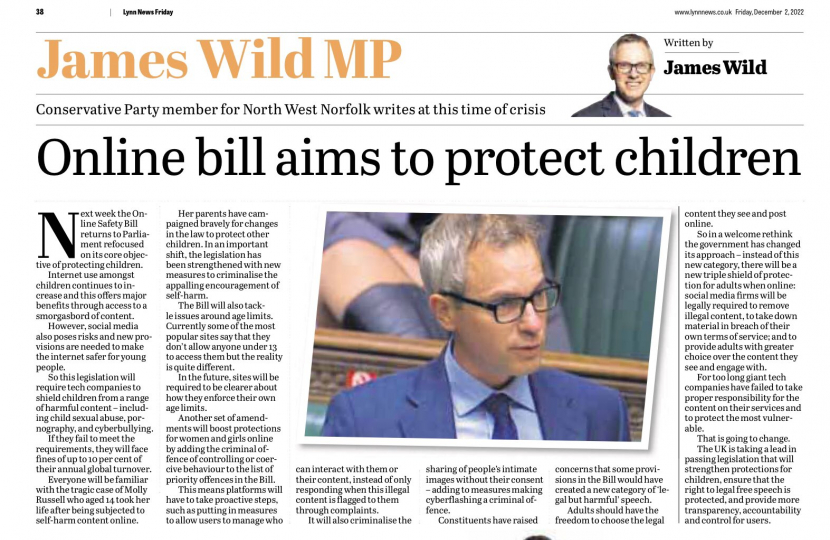
Next week the Online Safety Bill returns to Parliament refocused on its core objective of protecting children. Internet use amongst children continues to increase and this offers major benefits through access to a smorgasbord of content. However, social media also poses risks and new provisions are needed to make the internet safer for young people.
So this legislation will require tech companies to shield children from a range of harmful content – including child sexual abuse, pornography, and cyberbullying. If they fail to meet the requirements, they will face fines of up to 10 per cent of their annual global turnover.
Everyone will be familiar with the tragic case of Molly Russell who aged 14 took her life after being subjected to self-harm content online. Her parents have campaigned bravely for changes in the law to protect other children. In an important shift, the legislation has been strengthened with new measures to criminalise the appalling encouragement of self-harm.
The Bill will also tackle issues around age limits. Currently some of the most popular sites say that they don’t allow anyone under 13 to access them but the reality is quite different. In the future, sites will be required to be clearer about how they enforce their own age limits.
Another set of amendments will boost protections for women and girls online by adding the criminal offence of controlling or coercive behaviour to the list of priority offences in the Bill. This means platforms will have to take proactive steps, such as putting in measures to allow users to manage who can interact with them or their content, instead of only responding when this illegal content is flagged to them through complaints. It will also criminalise the sharing of people's intimate images without their consent – adding to measures making cyberflashing a criminal offence.
Constituents have raised concerns that some provisions in the Bill would have created a new category of ‘legal but harmful’ speech. Adults should have the freedom to choose the legal content they see and post online. So in a welcome rethink the government has changed its approach - instead of this new category, there will be a new triple shield of protection for adults when online: social media firms will be legally required to remove illegal content, to take down material in breach of their own terms of service; and to provide adults with greater choice over the content they see and engage with.
For too long giant tech companies have failed to take proper responsibility for the content on their services and to protect the most vulnerable. That is going to change. The UK is taking a lead in passing legislation that will strengthen protections for children, ensure that the right to legal free speech is protected, and provide more transparency, accountability and control for users.
This article first appeared in the Lynn News.

